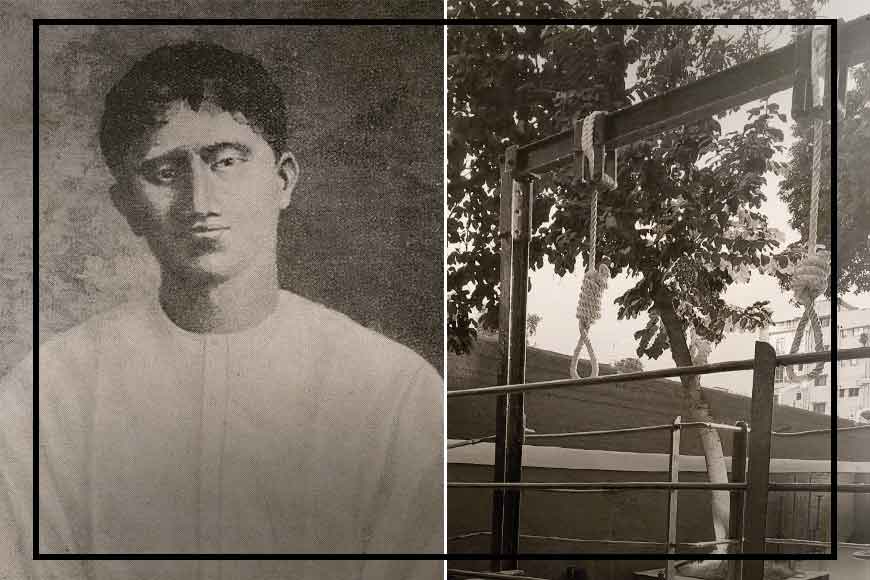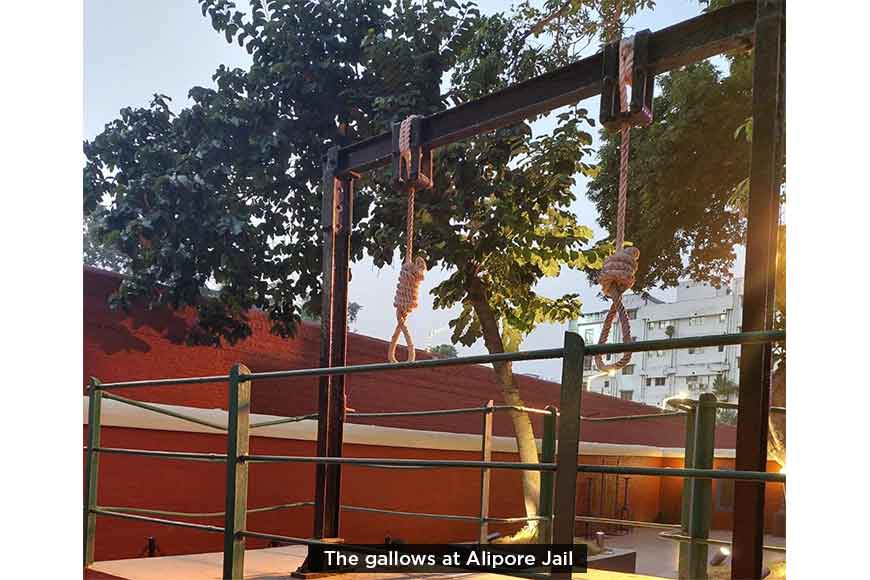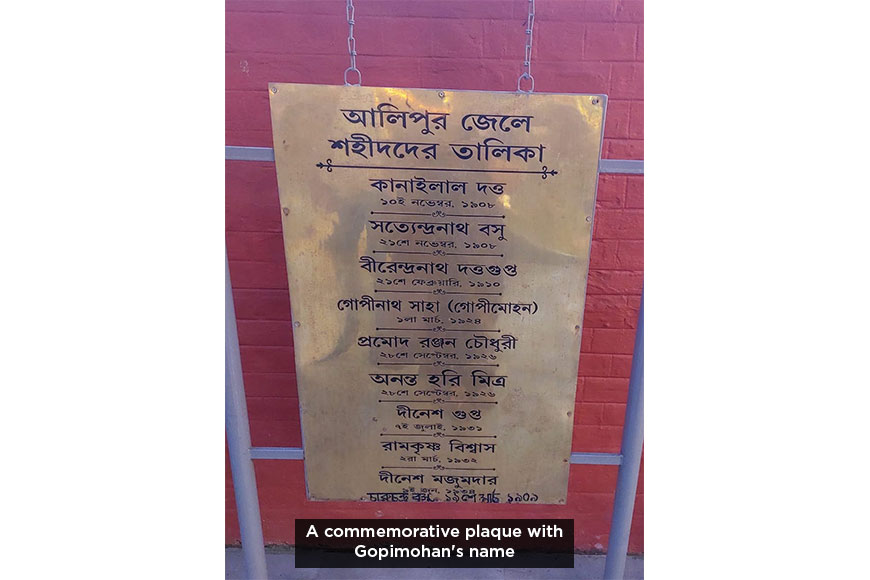A martyr at 19, the man who almost killed Charles Tegart

As we enter 2023, we begin a countdown to the death centenary of a young man whom history has mostly forgotten. His name – Gopimohan (Gopinath by some accounts) Saha, originally of Serampore. He inhabited Earth for a mere 19 years, and was hanged on March 1, 1924 in Calcutta’s Alipore Central Jail. The legacy he left behind ought to have been widely known, but isn’t.
Ostensibly a follower of the Hindustan Republican Association, the revolutionary armed society founded by Ramprasad Bismil, Jogesh Chatterjee, Chandrashekhar Azad and Sachindranath Sanyal during India’s freedom movement, Gopimohan single-handedly attempted to assassinate Charles Tegart (1881-1946), the hated and feared Police Commissioner of Calcutta. In a tragic case of mistaken identity, however, he ended up killing another Englishman named Ernest Day, and was arrested and executed despite large-scale protests.
Born in Northern Ireland, Tegart joined the Indian Police (Imperial Police) in 1901 and was posted to Pataliputra. Transferred to Calcutta in 1906, he joined the Detective Department as acting deputy commissioner. His rise over the next 25 years of uninterrupted service with Calcutta Police was proverbially meteoric.
A fearfully efficient administrator and ruthless adversary, Tegart successfully rid Calcutta of some of its most notorious antisocial elements, but that ruthlessness was what made him so hated among Bengal’s armed revolutionaries, many of whom knew first hand the inhuman torture tactics he employed against them.
Driven by boundless ambition, Tegart eliminated the divide between the city’s feared gangsters and its beloved revolutionaries. Not that he was unaware of the difference, but he made a conscious decision to sacrifice this awareness in order to satisfy his relentless need to earn a place in the government’s good books.
Not content with simply arresting revolutionaries, he scaled unprecedented heights of cruelty in his treatment of these prisoners, to the point where the merciless torture of enemies of the Crown became part of his very self. He had begun to find new definitions of torture through practise.
Driven by boundless ambition, Tegart eliminated the divide between the city’s feared gangsters and its beloved revolutionaries. Not that he was unaware of the difference, but he made a conscious decision to sacrifice this awareness in order to satisfy his relentless need to earn a place in the government’s good books.
Inevitably, a man such as him was destined to head the revolutionaries’ hit list. Of the multiple plots to assassinate him, one was formed by the rebel quartet of Anantalal Singha, Debendra Chandra Dey (after whom D.C. Dey Road in Kolkata’s Entally area is named), Gopimohan and Nagendranath Sen (Julu).



That first attempt, however, ended in failure. And a devastated Gopimohan decided to go it alone. On January 12, 1924 at around 7.00 am, dressed in a white dhoti and baggy khaki shirt, Gopi hovered around the Park Street-Chowringhee Road crossing, hoping to catch Tegart unawares on the commissioner’s morning walk.



Spotting a man standing in front of a large shop, and misled by his brown overcoat, Gopi walked up to him and hurriedly pulled the trigger. The first bullet flew wide, but the second found the mark, and Gopi then unleashed a hail of bullets into the body lying face down on the pavement.
The headlines in the next day’s papers read, ‘Mistaken Identity Saves Tegart’, while a Bengali paper came up with, ‘Providence Saves Sir Charles Tegart’s Life. Brutal Slaying of Mr Ernest Day at Chowringhee. Youth Named Gopinath [sic] Saha Arrested on the Spot’.
There was no way out for Gopi. The death sentence was predestined. Having suffered unspeakable torture during his imprisonment, he had this to say at the end of his trial on February 16, as the sentence of death by hanging was read out in the court of Sessions Judge Pearson: “I wished to kill Tegart. The fact that I killed an innocent man fills me with eternal regret. I beg the forgiveness of his family. But Tegart shall not be forgiven. I am certain that one among my patriotic comrades will kill the tyrant commissioner, and complete the task I leave unfinished, taking far more care than I have in committing the act.”

At the Sirajganj Congress Conference of 1924, Chittaranjan Das got Gandhiji’s Hindu-Muslim Pact proposal passed, and also pushed through a proposal praising Gopimohan, over which the pro-government English newspapers raised a hue and cry. How could the same Congress, which condemned terrorism, accord the status of a martyr to the killer of an innocent citizen at its regional conference?
A few weeks after Gopi’s hanging, a typed notice arrived for Tegart in the post.
BANDE MATARAM
Notice
The public is hereby informed that the Bengal Revolutionary Council has passed a resolution of a campaign of ruthless assassination of police officers. Anyone in any way actively or passively putting obstruction to our comrade when in action or retiring or helping the government of this country as by taking brief from the government or giving evidence in favour of the prosecution, etc. when such comrade is in the hands of the government, or inciting the government to take repressive measures shall be considered as doing acts highly prejudicial to the best interest of our country and from the moment any such action taken by anyone, he shall be considered as condemned to be dispatched forthwith.
PRESIDENT-IN-COUNCIL, RED BENGAL
Two days before his death, using the pen and paper obtained from a prison guard at Presidency Jail, Gopimohan wrote his last letter to his mother, the summary of which reads:
Dear Ma,
Pray to the Almighty that every household in India is blessed to have a mother like you, and that they all give birth to children like your Gopi, who will unthinkingly sacrifice their lives for the sake of their country.
Yours affectionately, Gopi

Source: India Cried That Night, an English translation of Supratim Sarkar’s Achena Lalbazar (Bengali) by Yajnaseni Chakraborty









